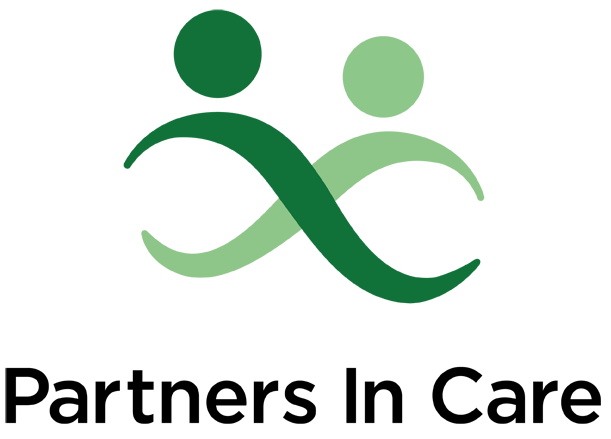Learning About End of Life
Start the Conversation
Death is something everyone has in common and most of us would prefer that experience to arrive comfortably, dignified, and peacefully, without much burden to our family. There’s no calendar or schedule that can predict the exact moment of death, but we can be assured that day will come. Many of us have already experienced a family member who has died, perhaps without an advance directive or advance care plan, and understand how challenging that can be.
While death isn’t a hot topic among family at holidays, and for some it may be quite uncomfortable, hospice experts recommend people have the end-of-life conversation. In fact, these difficult conversations should be framed not as one big moment, but a series of discussions to be had long before one’s death, or even hospitalization. Planning the death experience with family is an invaluable gift to your loved ones and can be some of the most meaningful and intimate moments to share. Studies have shown that end-of-life discussions may reduce the regrets, depression, and grief among survivors.
End-of-life planning includes the logistics of medical care, caregiving, advance directives, designations of healthcare proxy, documented wishes, estate beneficiaries, hospice care, and all that surrounds someone dying. Talking about death also includes describing a person’s desired quality of life before death. Making these kinds of end-of-life decisions before a crisis occurs will dramatically reduce the fear and stress of the dying person as well as their loved ones.

“My loved one was placed on Hospice just 2 weeks prior to his death. The hospice workers were all helpful, respectful, and communicative. We were just so early in the process and learning about what to expect when he went downhill quickly.”
 Ellen Goodman is a Pulitzer Prizer winning writer and created “The Conversation Project” after caring for her mother with Alzheimer disease.
Ellen Goodman is a Pulitzer Prizer winning writer and created “The Conversation Project” after caring for her mother with Alzheimer disease.
She said, “The last thing my mom would have wanted was to force me into such bewildering, painful uncertainty about her life and death. I realized only after her death how much easier it would have all been if I heard her voice in my ear as these decisions had to be made. If only we had talked about it. And so, I never want to leave the people I love that uneasy and bewildered about my own wishes. It’s time for us to talk.”
Specific topics to get end-of-life conversations started might look like these:
- What is most important to you as you think about the end of life?
- Where would you like to be during your final days?
- What do you want the remaining time of your life to be like?
- Who would you want to provide end-of-life care for you?
- What types of treatment options would you want or not want? (feeding tube, resuscitation)
- Who do you want to make medical decisions for you if you are unable to speak for yourself?
- Would there be anything left unsaid if you were to die suddenly?
- Are there financial affairs or legal documents you need to get in order?
- Are there any family complexities that need to be worked out?
- Are there important milestones you want to be present (birth of a grandchild, son’s 60th birthday)
- When is it OK to shift focus from curing a treatment to comfort care alone?
- Answer this question “What matters most to me at the end of my life is…”
Partners In Care offers patients a few resources to start thinking about end-of-life topics
- More about Palliative Care and Hospice Care from the National Institute of Health
- Listen to Our Podcast: Life’s Too Short
- Partners In Care Brochures
Learn More About End of Life
There are plenty of resources in pop culture that address advance care planning and end-of-life conversations, including podcasts, books, tv shows, and movies that can also be shared with family. Often these movies and shows can start the conversation and help people begin to think about death and end-of-life issues. Partners In Care does not personally endorse these as factual and recommends consulting your primary care physician or our office with specific questions regarding end of life. These resources below are simply recommended as a way to navigate the topic of terminal illness in a less direct manner.
Podcasts or Talks
- BJ Miller’s Ted Talk “What really matters at end of life”
- End Well Podcast
- All There Is with Anderson Cooper, CNN Audio, specifically the episodes “You Are Not Alone” and “Sadness Isn’t An Enemy”
- “Moving Forward,” TED Radio Hour
- “When Surviving Is Enough,” A Slight Change of Plans, Pushkin Industries
- What’s Your Grief Podcast
- The Art of Dying Well Podcast
Television Series
- Limitless, Episode 6 “Acceptance” – Disney+
- I know This Much Is True – HBO Max
- After Life – Netflix
- Dead to Me – Netflix
- This Is Us – NBC Entertainment
- From Scratch: A Memoir of Love Sicily, and Finding Home – Netflix
- Time of Death – Showtime Networks
Movies
- Black Panther: Wakanda Forever, Marvel
- Coco, Disney
- A Moment to Remember
- Terms of Endearment
- The Nurse with the Purple Hair
- My Girl
- 50/50
- Dead Poets Society
- The Bucket List
